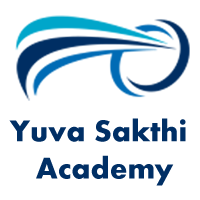Yuva Sakthi Academy offers an immersive Django training program designed to equip students with the skills necessary for modern web development.
Our course focuses on key features of Django, including:
- Model-View-Template (MVT) Architecture: Understand Django's powerful MVT architecture, which promotes a clean separation of concerns and enhances code organization.
- Admin Interface: Learn how to leverage Django's built-in admin interface to manage application data efficiently and streamline administrative tasks.
- Database Integration: Gain practical experience in integrating databases with Django, utilizing its Object-Relational Mapping (ORM) system for seamless data manipulation.
- Forms and Validation: Explore Django's robust form handling capabilities, including form validation and rendering, to create dynamic and user-friendly web forms.
- RESTful APIs: Delve into building RESTful APIs with Django Rest Framework, allowing for efficient data exchange between your application and client-side frameworks.
- Security Features: Understand the security measures built into Django, including user authentication, permissions, and protection against common web vulnerabilities.
Our training emphasizes hands-on projects, enabling students to create robust and scalable web applications. With expert instructors and a collaborative learning environment, Yuva Sakthi Academy is dedicated to helping you master Django and propel your career in web development.
The primary objective of this comprehensive Django training program is to empower aspiring developers with the essential skills required to become proficient in building robust web applications using Django.
Our curriculum is designed to take participants from foundational concepts to advanced techniques under the guidance of industry-experienced instructors.
Throughout the course, you will gain a deep understanding of Django's Model-View-Template (MVT) architecture, along with practical insights into how Django's ORM simplifies database interactions. By the end of the program, candidates will have the skills necessary to build scalable, maintainable, and secure web applications.
Core Topics Covered:
- Model-View-Template (MVT) Architecture: Understand the separation of concerns in Django applications and how to structure your projects for maintainability.
- Django ORM: Master the Object-Relational Mapping (ORM) system for seamless database integration and management, including querying, relationships, and migrations.
- Forms and Validation: Learn how to create, manage, and validate forms in Django, along with leveraging built-in validators and custom validation techniques.
- RESTful API Development: Build and consume RESTful APIs using Django Rest Framework, including authentication, serialization, and API versioning.
- Authentication and Authorization: Implement user authentication and role-based access control, including social authentication with third-party providers.
- Testing and Debugging: Develop unit tests and functional tests to ensure code reliability and maintainability, and learn debugging techniques to streamline development.
- Security Best Practices: Gain insights into common security vulnerabilities in web applications and how to safeguard against them, including Cross-Site Scripting (XSS) and SQL Injection.
- Deployment Strategies: Explore deployment options using services like Heroku, AWS, and Docker, ensuring your applications are production-ready.
- Real-Time Features: Implement WebSockets for real-time functionalities, such as chat applications and notifications, using Django Channels.
Syllabus:
- 1. Introduction to Django
- What is Django and its history
- Key features and benefits of using Django
- Setting up the development environment
- Understanding the Django project structure
- Django’s MVT architecture
- 2. Django Models and Database Interaction
- Creating and managing models
- Understanding Django’s Object-Relational Mapping (ORM)
- Database migrations and schema management
- Querying the database using the ORM
- Handling relationships between models
- 3. Django Views and Templates
- Creating function-based views and class-based views
- Understanding URL routing and dispatching
- Rendering HTML templates with context
- Template inheritance and reusable components
- Using Django template tags and filters
- 4. Forms and User Input
- Creating forms in Django
- Form validation and error handling
- Handling file uploads
- Using ModelForms for seamless integration
- Customizing form widgets and layout
- 5. Django Authentication and Authorization
- Understanding user authentication
- Implementing user registration and login
- Using Django’s built-in authentication system
- Managing user permissions and groups
- Implementing password reset and email verification
- 6. Django Admin Interface
- Customizing the Django admin interface
- Adding custom actions and views
- Using admin filters and search functionality
- Overriding admin templates and styles
- Creating admin dashboards
- 7. Working with Django REST Framework
- Introduction to RESTful APIs
- Setting up Django REST Framework (DRF)
- Creating API views and serializers
- Implementing authentication in APIs
- Versioning APIs and handling CORS
- 8. Testing in Django
- Understanding the importance of testing
- Writing unit tests for models and views
- Testing forms and templates
- Using Django’s testing tools and best practices
- Mocking external services for tests
- 9. Deployment Strategies
- Preparing Django applications for production
- Deployment options (Heroku, AWS, DigitalOcean)
- Using Docker for containerized deployments
- Setting up Continuous Integration and Continuous Deployment (CI/CD)
- Monitoring performance and logging in production
- 10. Project Work
- Building a complete Django web application
- Implementing features such as authentication, REST APIs, and custom views
- Deploying the final project and showcasing it
- Preparing for technical interviews and project presentations
